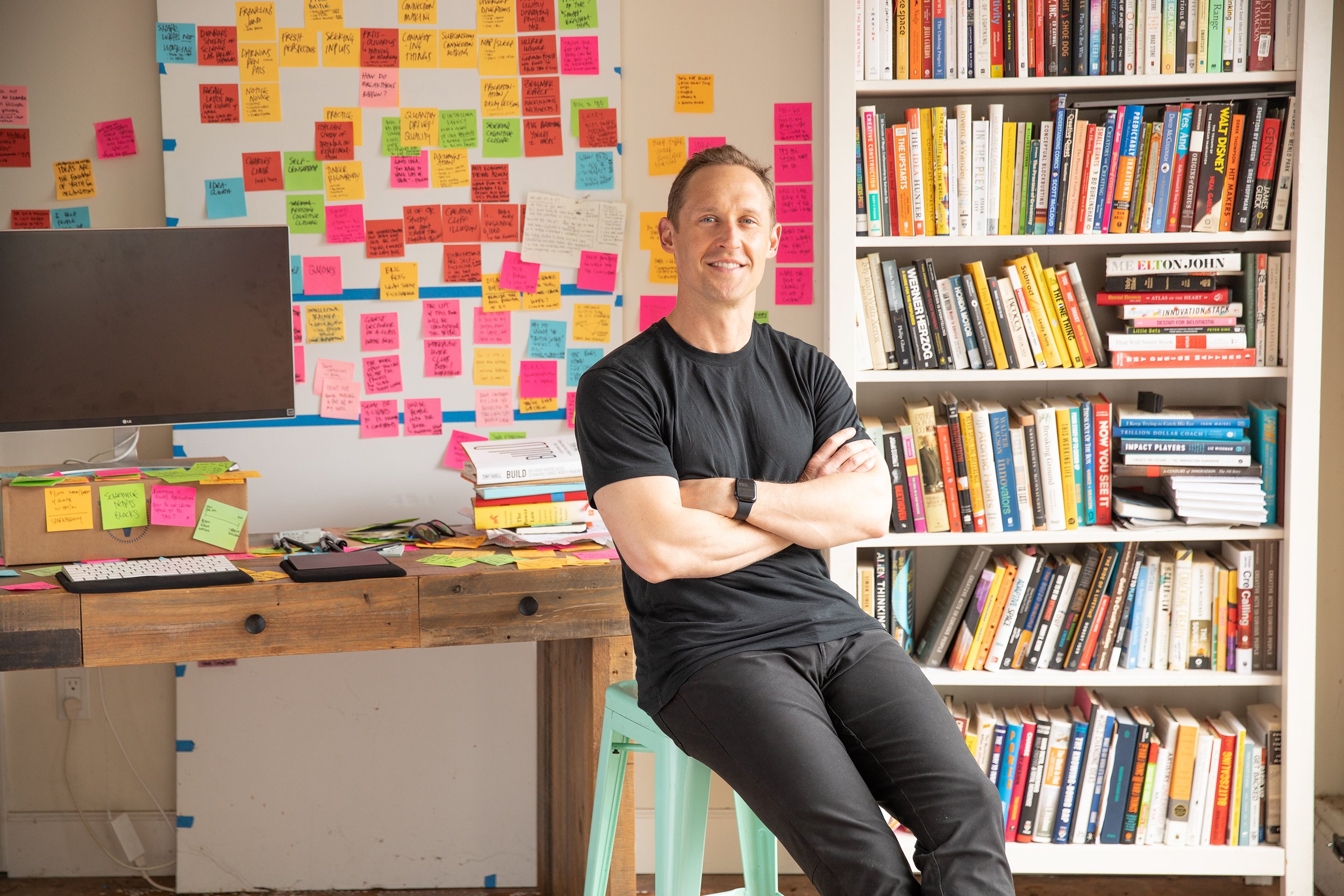
Methods of the Masters
A blog on the art & science of creative action.
Be Inefficient
One of the greatest challenges on the journey to creative mastery is that the “rules” of creative genius fly in the face of the normal, smart thing to do. Stories from Seinfeld and others encourage me to persist in the wrong direction.
Audit Your Collaborator Portfolio
When you perform a calendar audit, consider the collaboration layer. Ask these three questions to identify gaps in your portfolio of perspectives.
Dial In Diversity
Very few teams see diversity as a lever they can pull to drive outcomes. “Team” is more of a fixed concept than a fluid one. The biggest opportunity is actually to deliberately dial up cognitive diversity.
Leverage Spare Time
Amidst the frenzied pace of life, it’s tempting to veg out whenever there’s a down moment. “Doomscrolling” is real! Instead of whittling away the hours, creative geniuses make good use of found time.
Hack Your Creative Block
Why aren’t we more like Einstein? Here’s a powerful daily habit to short-circuit the Einstellung Effect, a cognitive bias that threatens the creativity of both experienced and novice innovators.
Make Time To Learn
A critical priority in a productive, creative life is to make time to think, reflect, and synthesize. Here are a few examples of how spectacular innovators have carved out the necessary space.
Make Exploring A Habit
The origin story of Netflix is a case study in innovation. Marc Randolph and Reed Hastings were uniquely positioned to take advantage of a market shift because they had a habit of exploring.
To Promote Innovation, Make Your User The Hero
Due to tight delivery schedules, it might seem faster to skip deep customer research and just start building something. This is wrong. Empathy fuels both insights, and the stories that enlist enthusiastic collaboration.
Treasure The Mess
“Who in their right mind would work in such conditions???” I often think to myself… And then that very, messy environment delivers an unexpected connection at the perfect time, and I remember: me.
Train Your Imagination
Imagination isn’t fixed — just look at children! Adults might think they’re destined to lose the capacity; fortunately it can be trained. Here’s one of our favorite games at Stanford to flex the imagination muscle.
Welcome Surprises
Imagination is sparked by surprises. So if we want to stimulate fresh thinking, we ought to be seeking out surprises. Customer insights leader Kelly Garrett Zeigler tells a story that highlights the importance of welcoming an unexpected direction.
Find Your Team’s Swing
Today’s post comes from Josh Ruff, consummate craftsman, coach, and innovation leader. Josh draws parallels between a creative team leveraging diverse perspectives, and a rowing team reaching the ever-elusive state of “swing.”
Critical Reminders for Innovation
It is the things that never occur to us that often cause the biggest problems. There are entire schools of thought dedicated to unearthing assumptions, rooting out bias, etc. Here are two simple bias checks worth regularly revisiting.
Protect Unscheduled Time
When all of our time is spoken for, we dramatically reduce the odds of surprises, not to mention shortchanging the longer-duration gestation required for insight formation and creative thinking. How one great leader preserves time for serendipity.
Perform An Innovation Audit
A simple ritual powers Jeff Bezos’ effectiveness as a leader of innovation at Amazon. Every quarter, he conducts a simple audit — two simple tactics that every innovation-oriented-professional ought to leverage with regularity.
Create Decision Points
Trying to figure out whether you have a good idea? Don’t ask people what they think! A better way to assess a new concept is to give folks the opportunity to vote without realizing it.
Focus On One Killer Feature
In the last 12 years, I’ve helped some 10,000 new innovators in training come up with new ideas and quickly assess if any are worth pursuing. I have never seen a new product with too few features.
Remove Insulation
Senior leaders unwittingly eliminate insights and ideas by insulating themselves from the pain their users experience. By removing insulation, orgs can feel the pain they should be solving!




















